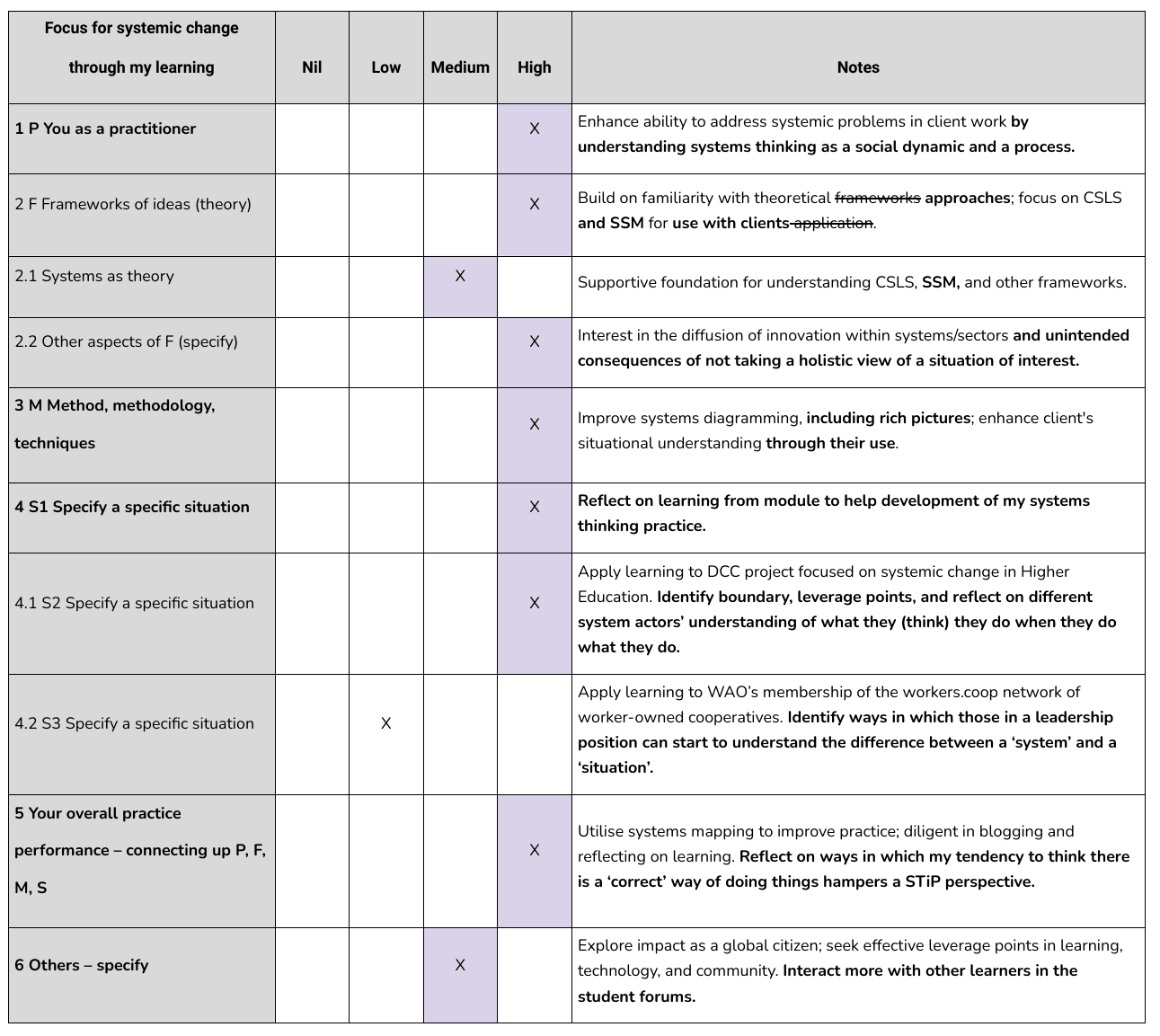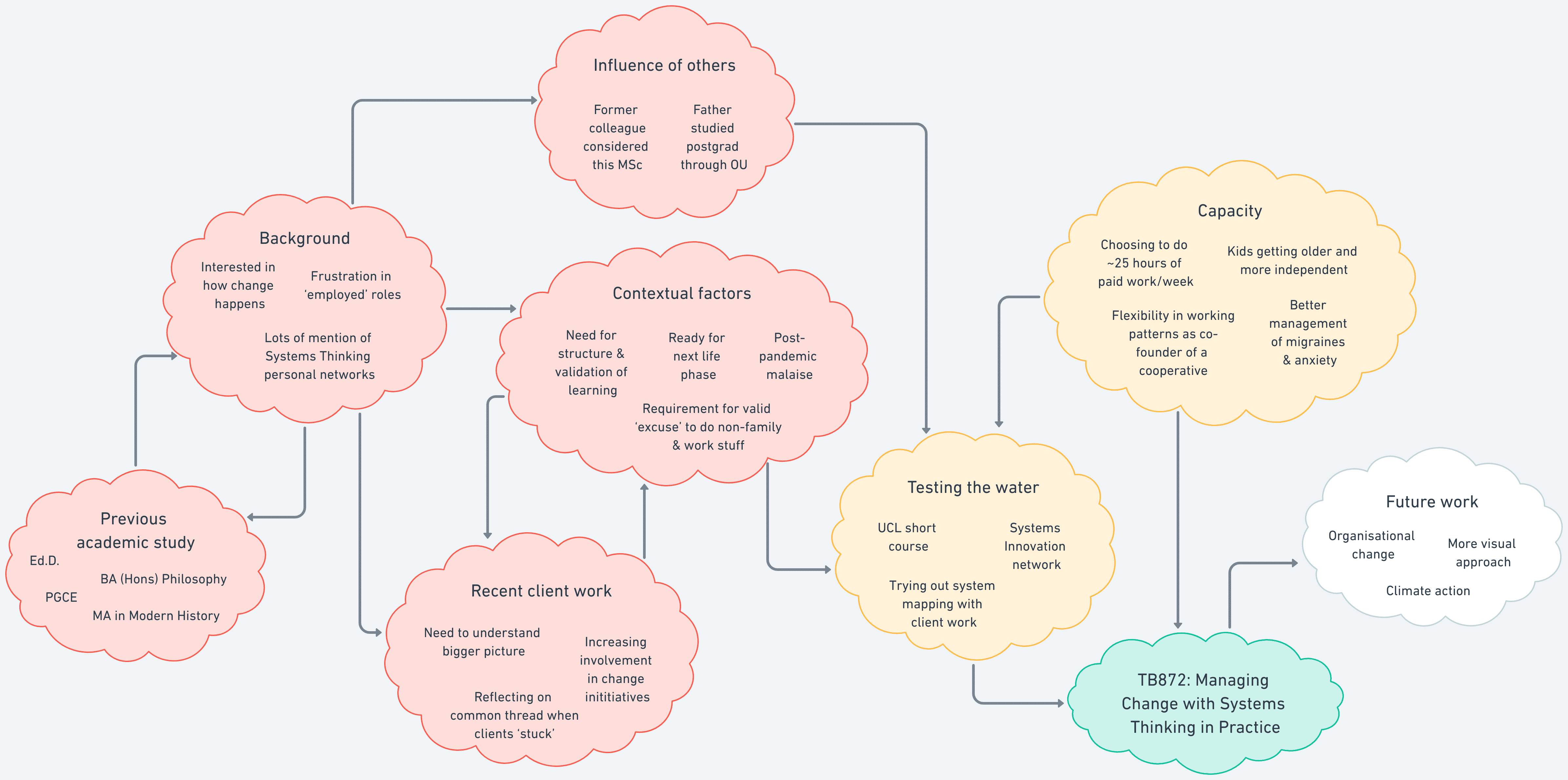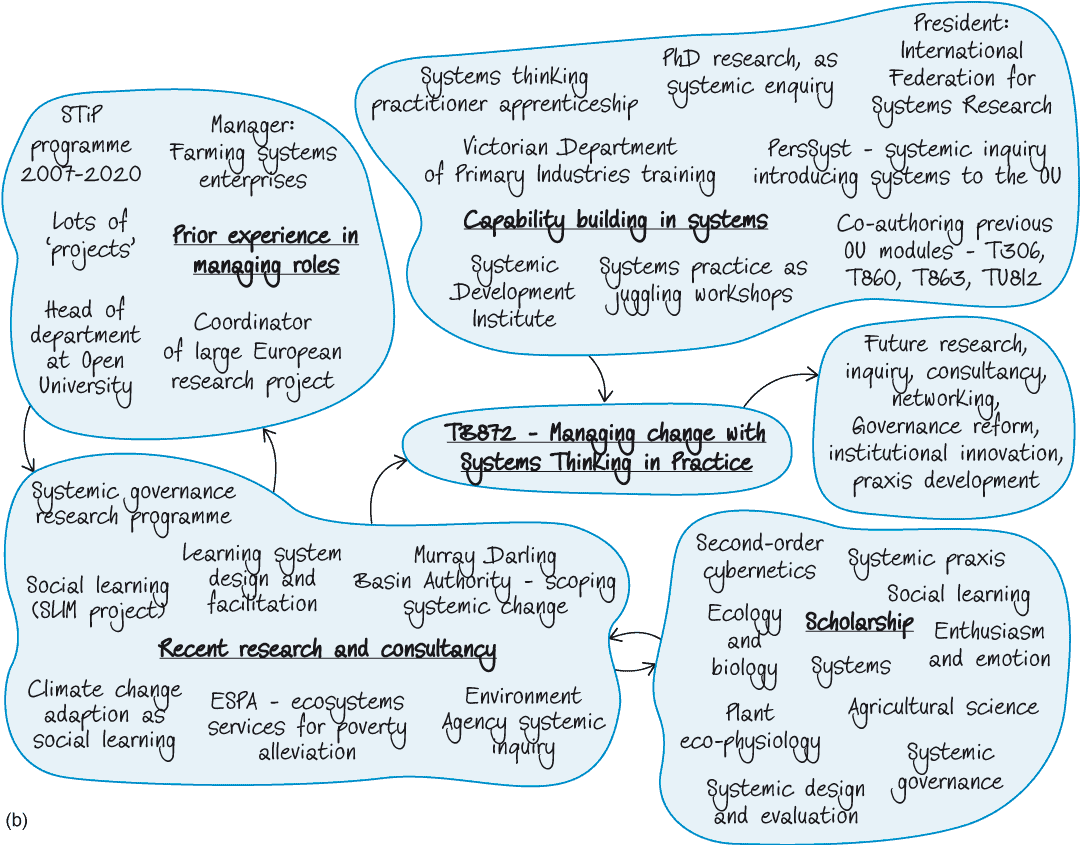TB872: Revisiting my learning contract
Note: this is a post reflecting on one of the modules of my MSc in Systems Thinking in Practice. You can see all of the related posts in this category.
At the end of November, I was asked to come up with a learning contract. You can see my post about it here, and the table I produced can be found below. I’ll call this one Version 1 (v1).

As part of the learning process, we’re asked to go back and revisit this based on what we’ve learned since doing this. So below is my updated version (v2), with new additions to the ‘Notes’ section in bold, a new colour to differentiate it, and strikethrough formatting on words I’ve removed.

I’ll admit to being quite confused by the difference between S1 and S2. I still am to some degree, although I’ve got more of a grip on it than before. As you can see, my S1 in v1 applies to a client situation, which is actually an S2. In v2 of my learning contract, I correct that.
The words in bold that I’ve added show my additional learning over the past month or so. In particular, what I’ve learned from Chapter 2 and Chapter 3 of Ray Ison’s Systems Practice: How to Act about systems thinking as a social dynamic and as a process. I’ve also realised through some of the readings just how important it is to take a holistic view of a particular situation of interest. This is crucial for those in leadership positions, but it’s also important for everyone in an organisation to have some kind of understanding of the whole.
One of the things that’s fascinating is to see how my own understanding of “what I do when I do what I do” has developed over the weeks since I started this module. As my (second) rich picture shows, I’ve been reflecting on tendencies that I have to fight against in terms of perfectionism and control.
What I’ve noticed is how I have come to learn about STiP at pretty much an ideal time in my life. As I was explaining to someone recently, if I had studied systems thinking earlier, I wouldn’t have been ready; I need the lived experience for it to be worthwhile. Coupled with the academic study I’ve done and the approach I took to my doctoral thesis, what I’m doing here feels like a logical extension.
I’m particularly interested in leverage points, and have come to realise that it’s only really possible to identify them once you’ve spoke to plenty of people within a particular situation of concern, and (visually) mapped it out. I’m really looking forward to doing more of this, both for the course, and in terms of my work with clients.
Towards the end of Chapter 3, in a footnote, Ray Ison discusses Max Weber’s concept of an ‘ideal type’:
An ideal type is formed from characteristics and elements of the given phenomena, but it is not meant to correspond to all of the characteristics of any one particular case. It is not meant to refer to perfect things, moral ideals nor to statistical averages but rather to stress certain elements common to most cases of the given phenomena.
Ison, R. (2017) Systems practice: how to act. London: Springer. p.56. Available at: https://doi.org/10.1007/978-1-4471-7351-9.
In that regard, an ideal type is not a Platonic form, but rather something which is more akin to the Pragmatic idea that something is ‘good in the way of belief’. That is to say that it’s an approach to situations which lead to good outcomes, rather than being a template for all outcomes. At least, that’s the way I’m thinking about this at the moment, before moving on to the next section of the book.



